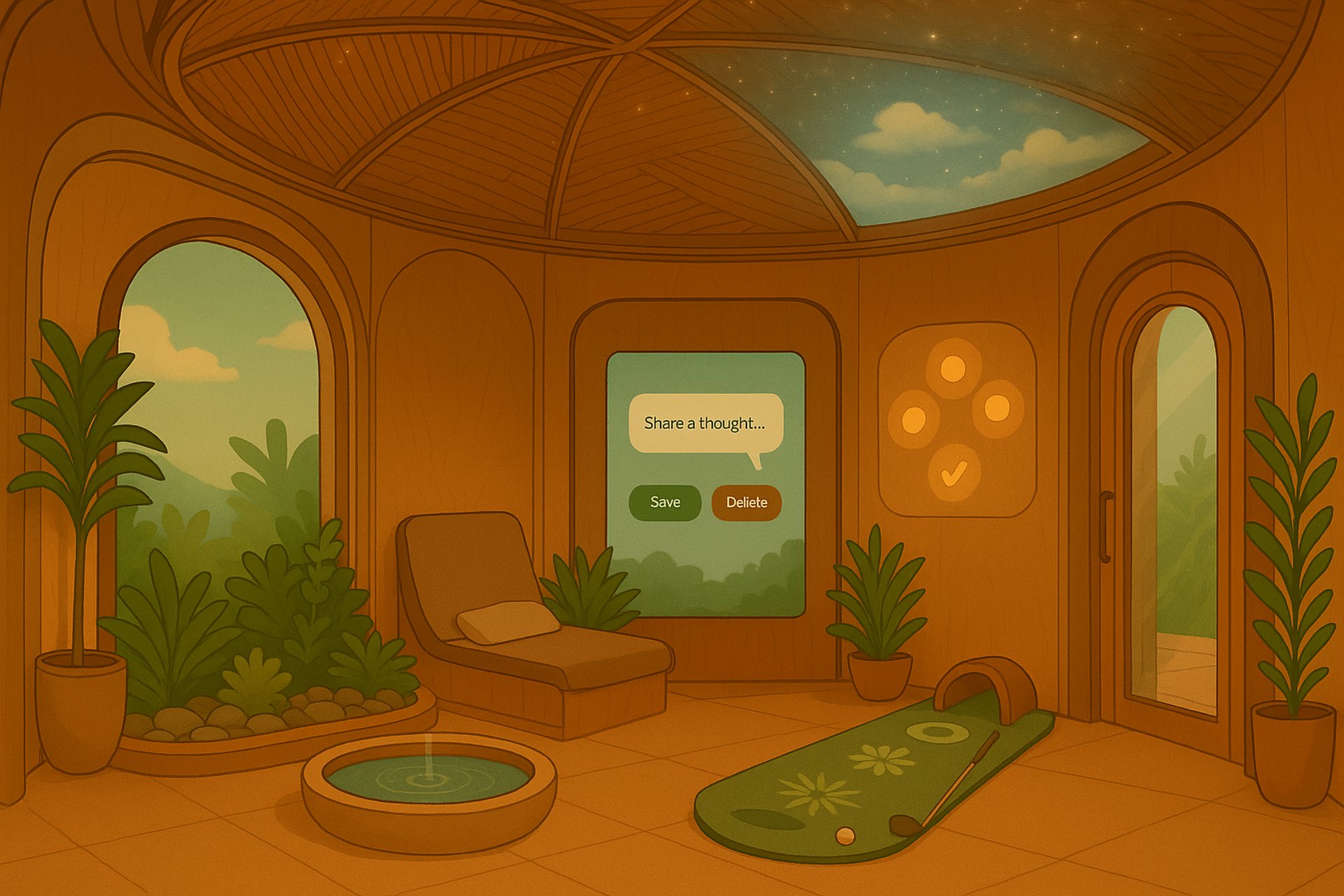
WAQFA
Waqfa is a modular system of recovery —right where daily stress builds. It is preventive care that includes a mobile app, a narrative game, and an immersive physical pod — designed to work together or stand alone. It transforms emotional recovery into a daily practice by embedding support where stress happens.
Waqfa reimagines pause as a public good, rooted in cultural traditions of waqf (charitable endowment), and design interventions that make emotional balance accessible—exactly when and where people need it most.
Project Type: Experience Design
Date Started : February 2025
Location: Dubai
People: Individual
Status: Prototyping & Validating
Designing for Pause: The Why Behind Waqfa
Waqfa was born out of a personal and academic inquiry into the growing mental health crisis in fast-paced urban environments. It is inspired by my graduate thesis research on biophilic design and emotional wellbeing, and a close family member’s experience with chronic stress,
Emotional stress is a constant and invisible burden in urban life —especially for students, working professionals, and commuters. Despite rising awareness of mental health, most cities offer few opportunities for emotional recovery in public spaces where stress actually builds.
What we really need is a middle layer — something that helps us reset emotionally, as part of daily life, not apart from it.
Stress follows a rhythm: fatigue in the morning, anxiety mid-day, burnout by night — but cities don’t offer space for stillness in that rhythm.
The intent is to design an ambient, non-clinical, and publicly accessible solution that helps people pause and reset within the natural rhythm of daily life. The project explores how cities might support emotional recovery — not just productivity.
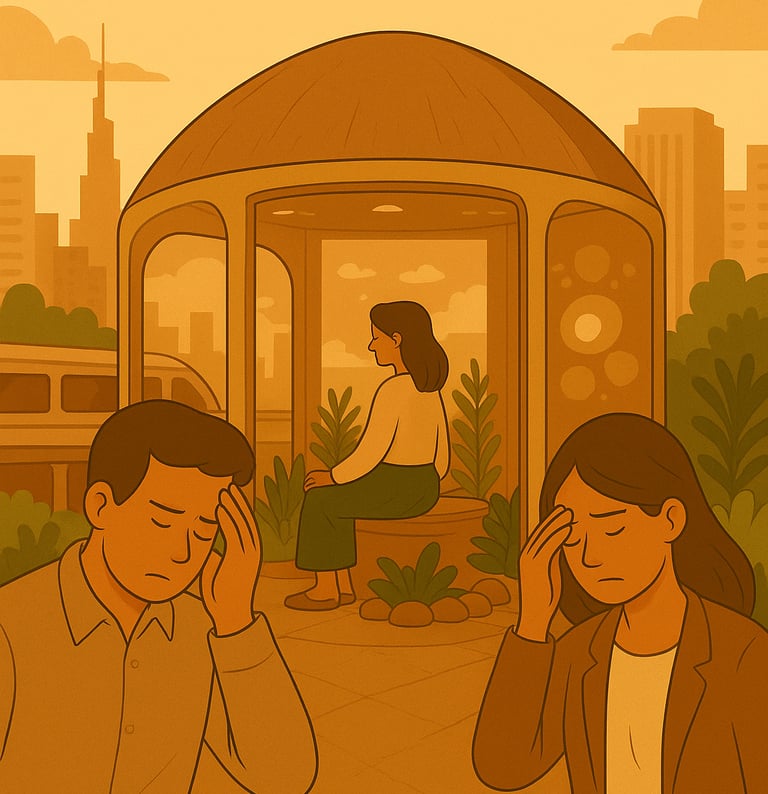

The Evidence
The data is alarming. And yet, most mental health services are reactive, clinical, or hard to access — they often come in only after things have spiraled
1 in 3 employees show symptoms of burnout
40% students in the UAE show signs of anxiety or depression
11 AM to 12 PM peak in mental fatigue among office workers
7-9 AM Heightened cortisol, irritability, lack of focus on arrival
Timeline
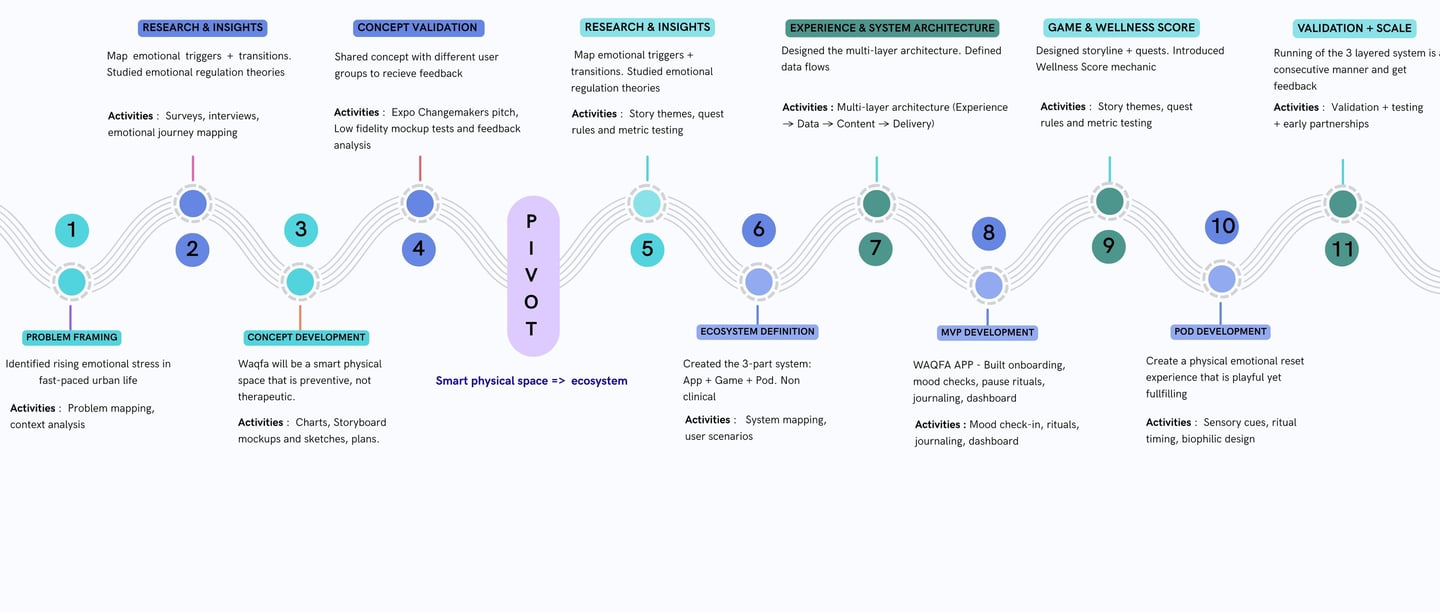

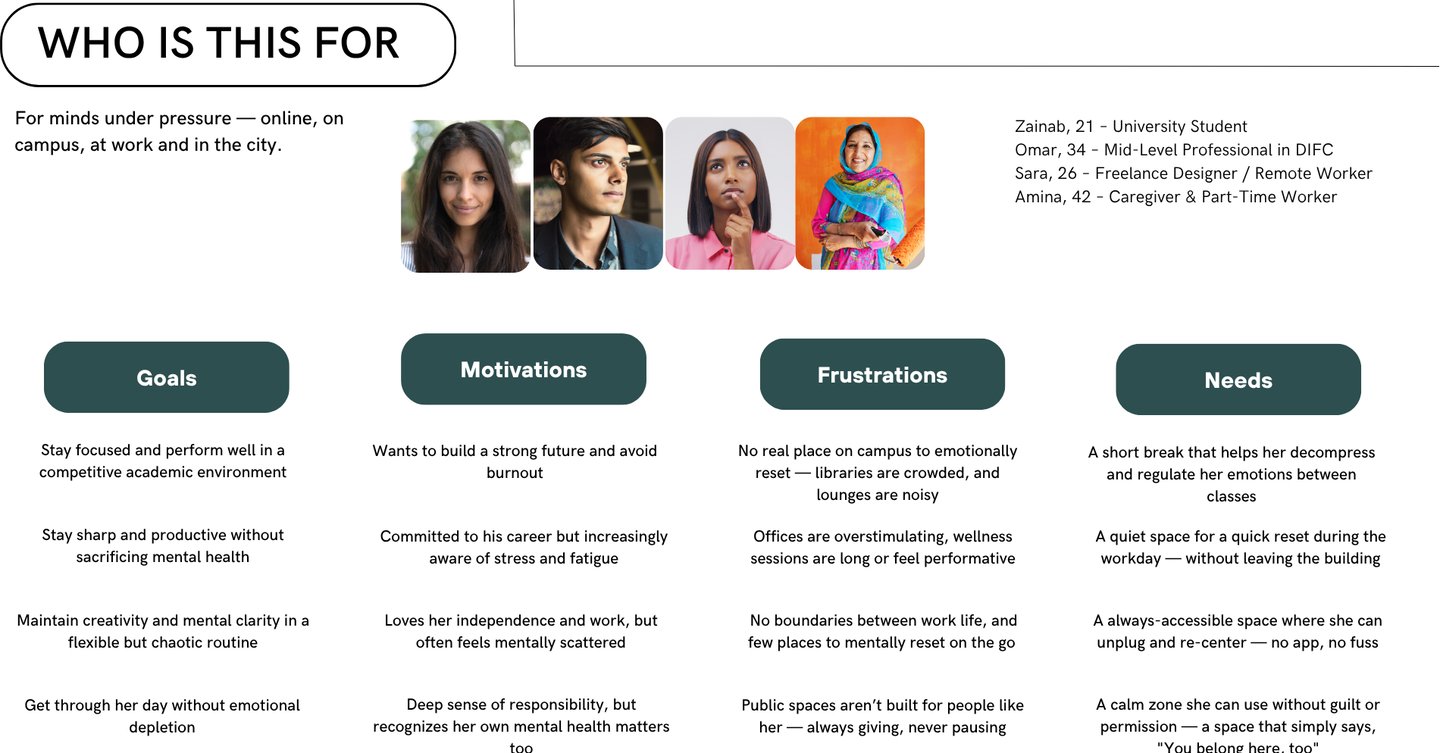

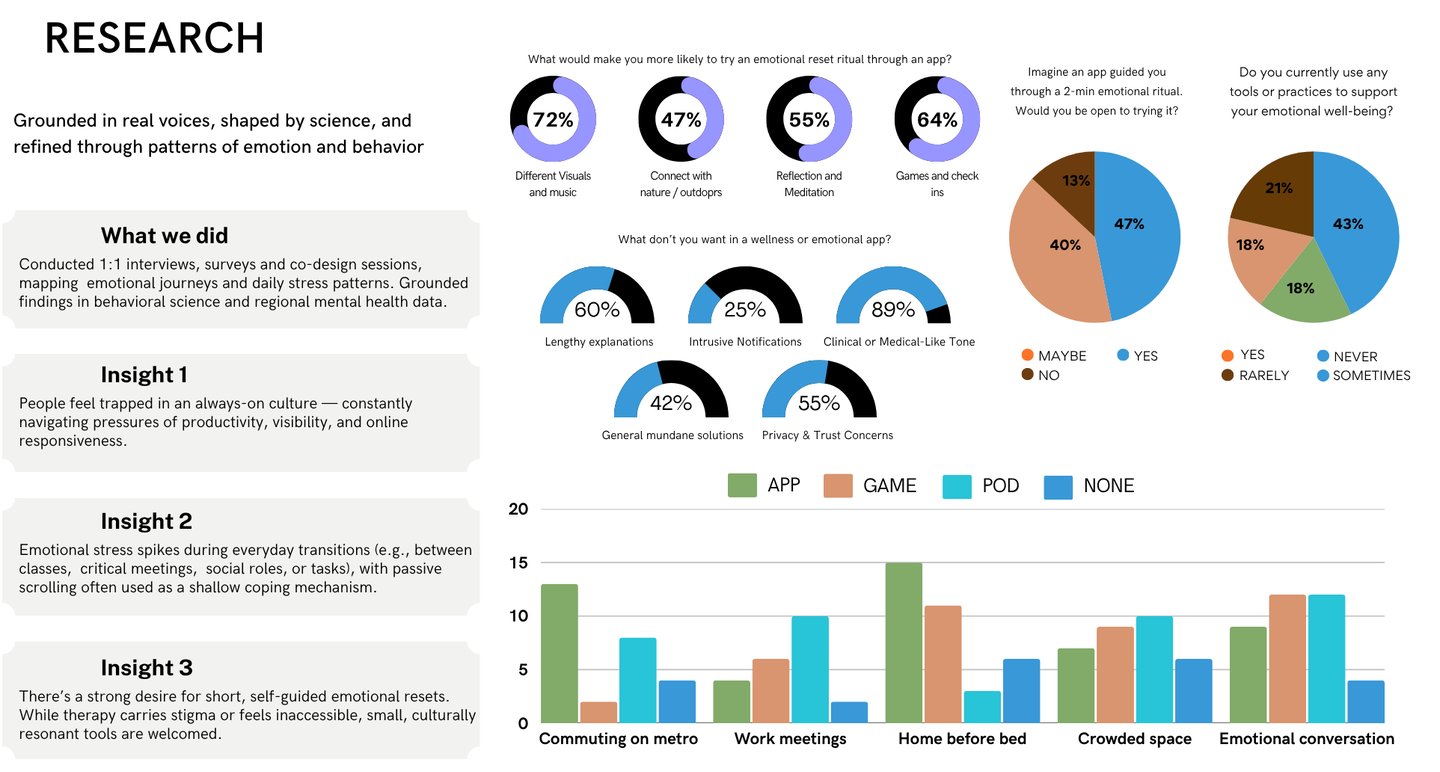

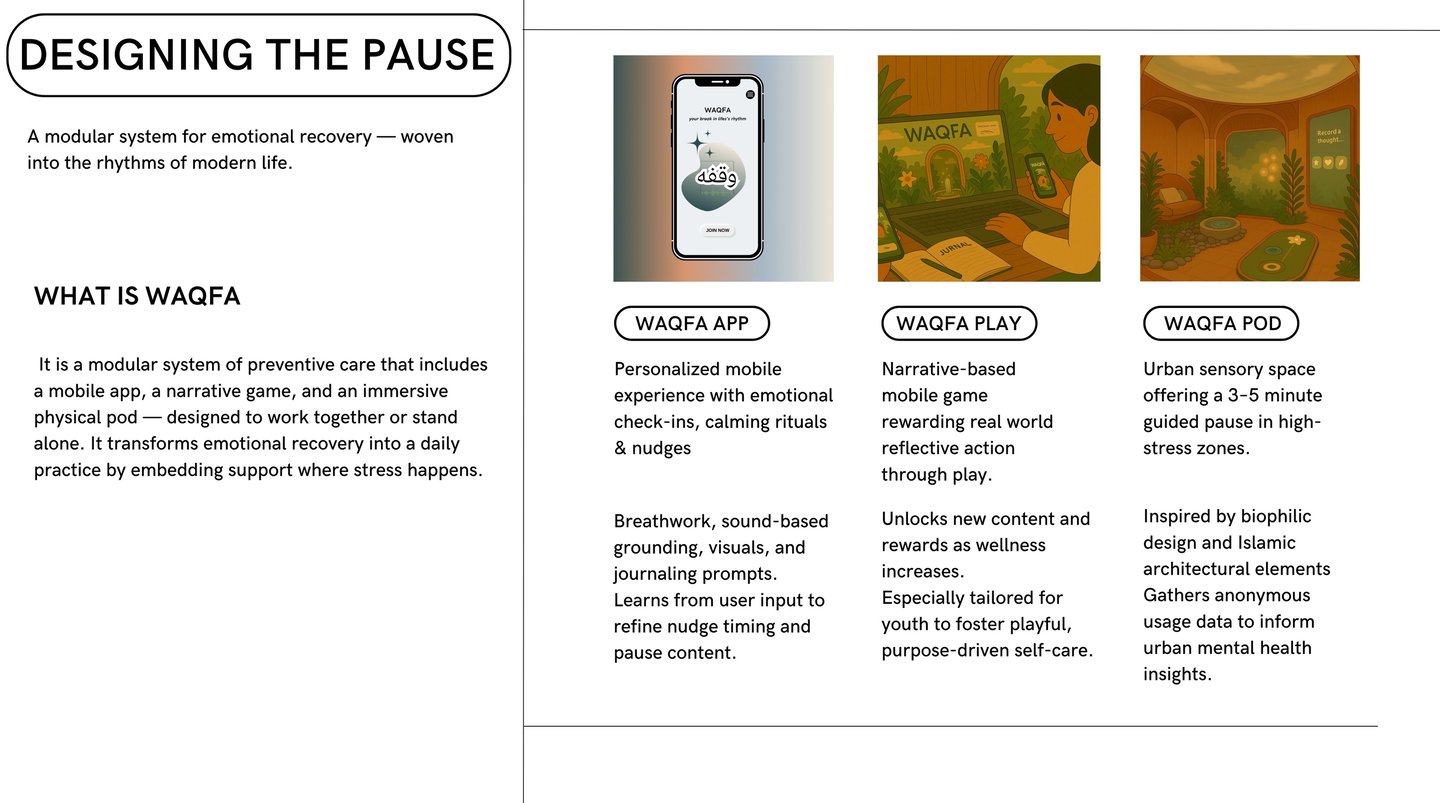

STORYBOARD
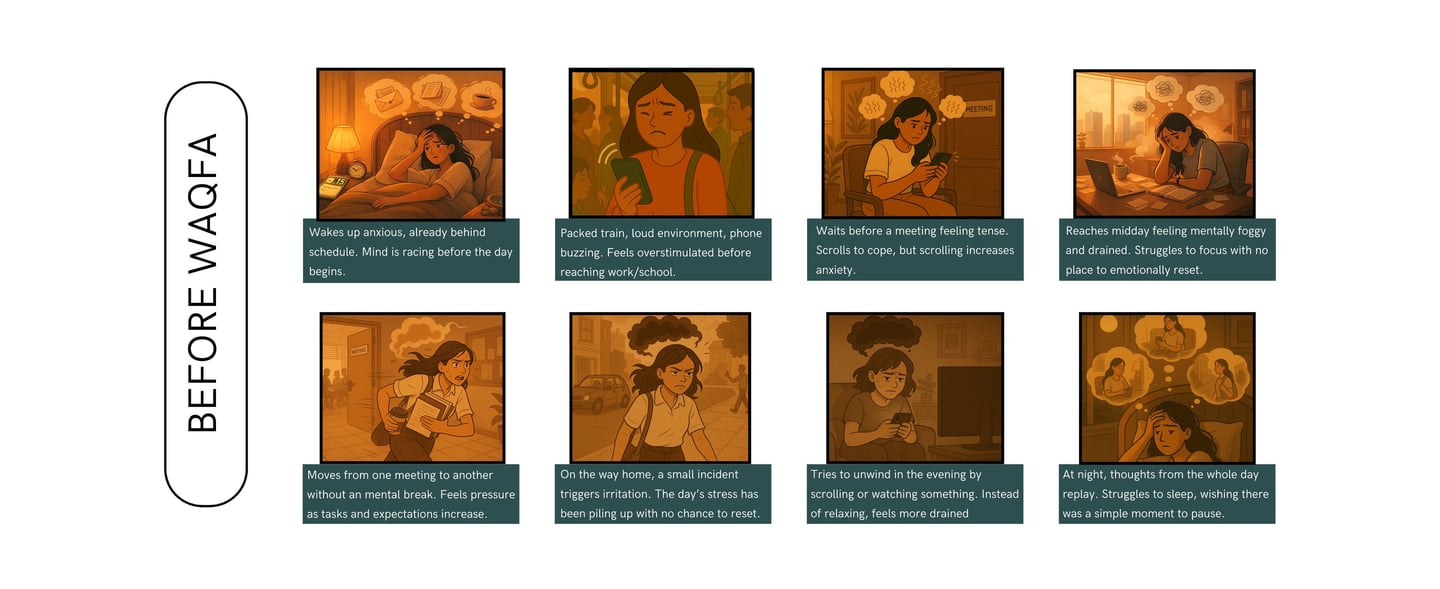

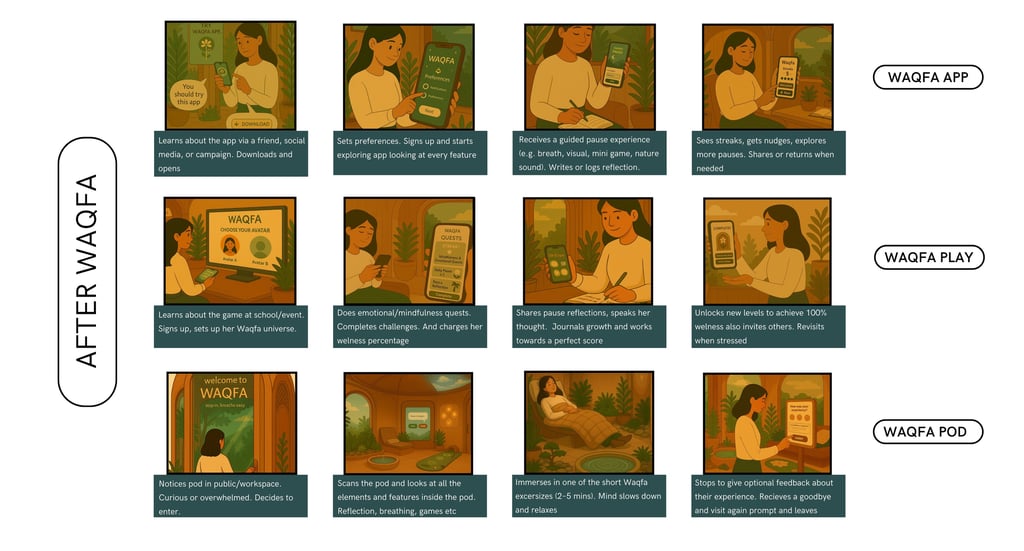

FROM CONCEPT TO CARE
To bring our vision to life, we developed a functional MVP of the Waqfa Emotional Companion App — complete with onboarding, mood check-ins, preventive pause experiences, journaling, and a user dashboard. This prototype serves as both a validation tool and a conversation starter — inviting users, partners, and policymakers to reimagine how urban life can feel.

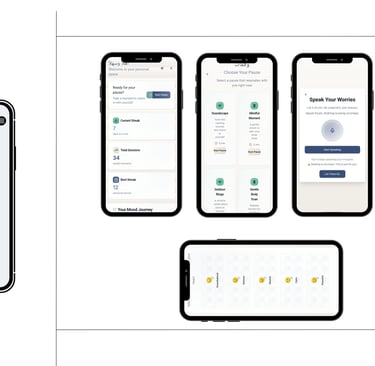
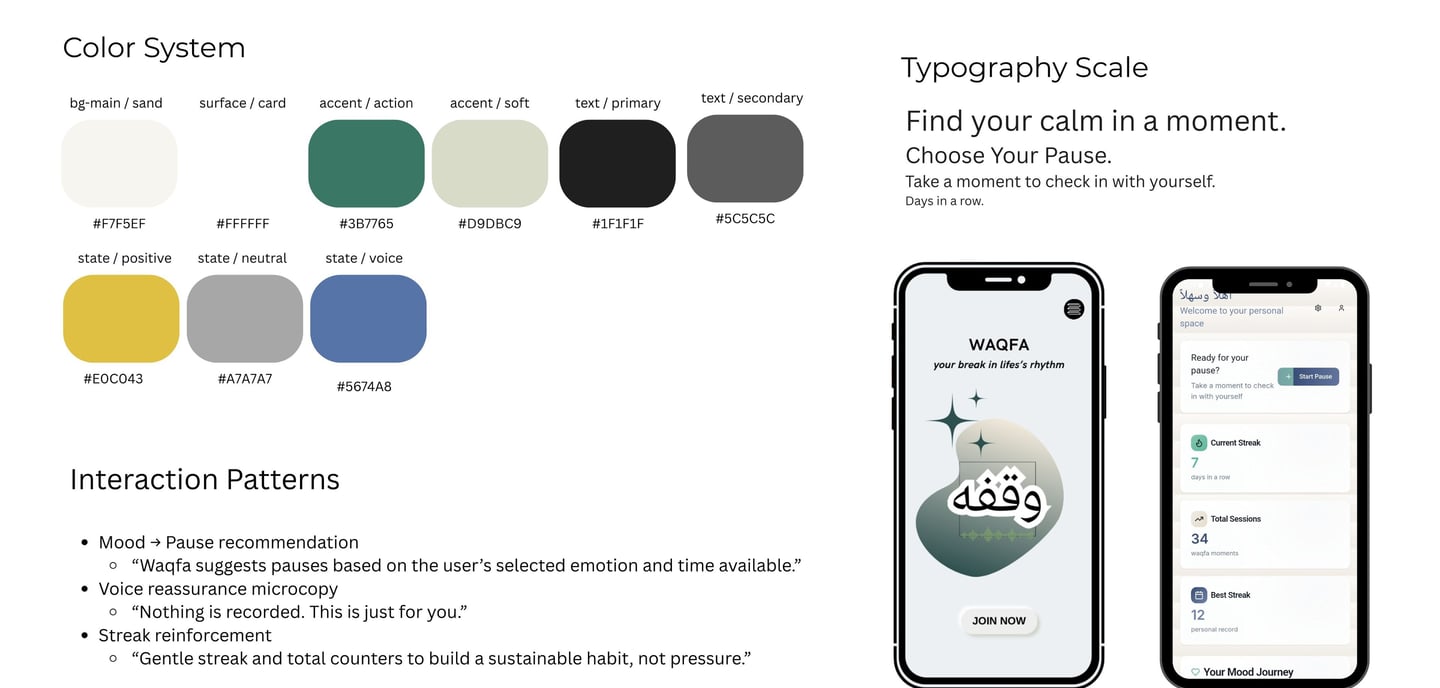

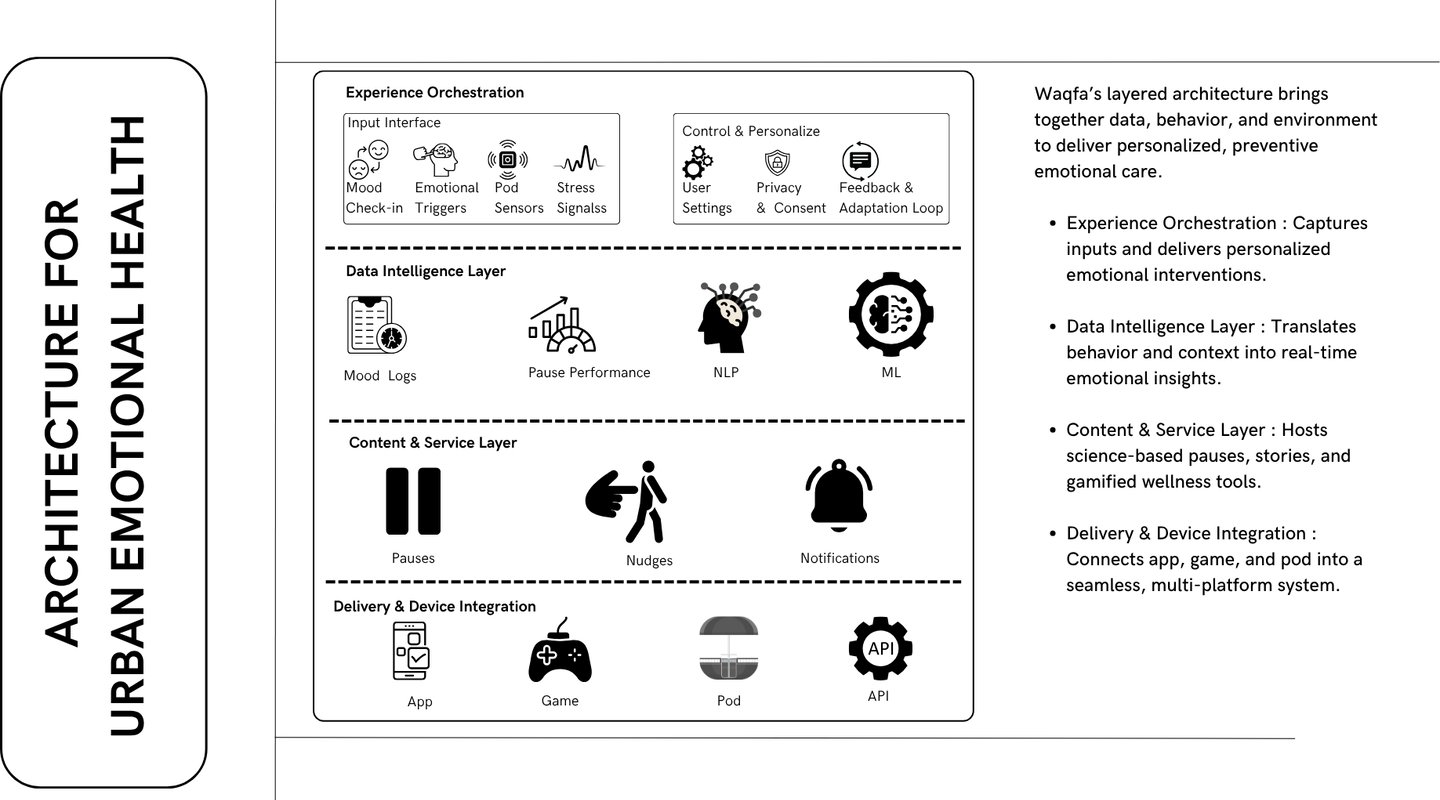

Service Blueprint
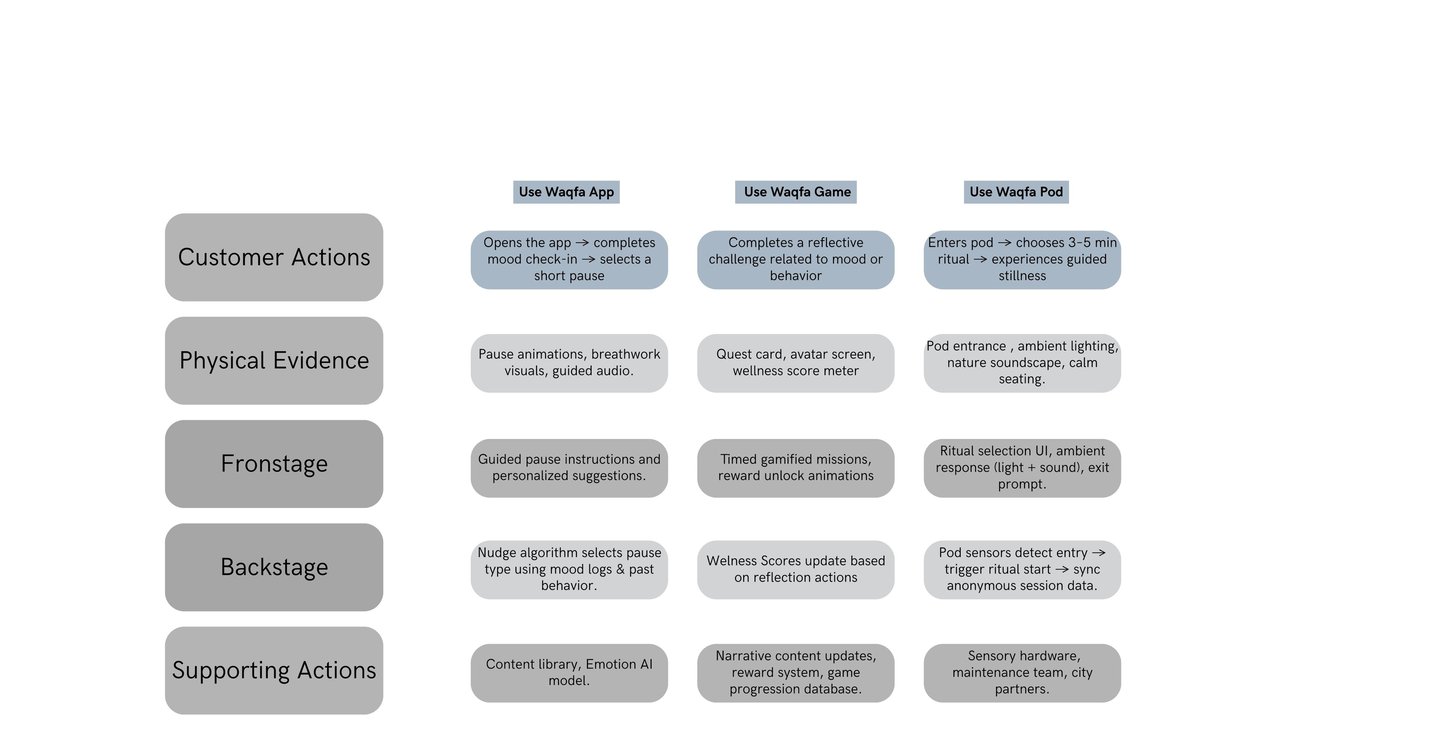

Learnings
Waqfa taught me how to combine systems thinking with deep empathy to address an urgent and often invisible challenge. I learned how to move fluidly from research to prototyping — balancing emotional design with technical feasibility and considerations around urban planning. This project showed me the power of embedding care into the everyday — not as a retreat from the city, but as a form of civic infrastructure. Looking ahead, I aim to pilot Waqfa with institutional partners and continue designing emotionally intelligent spaces where wellbeing becomes a public right.
